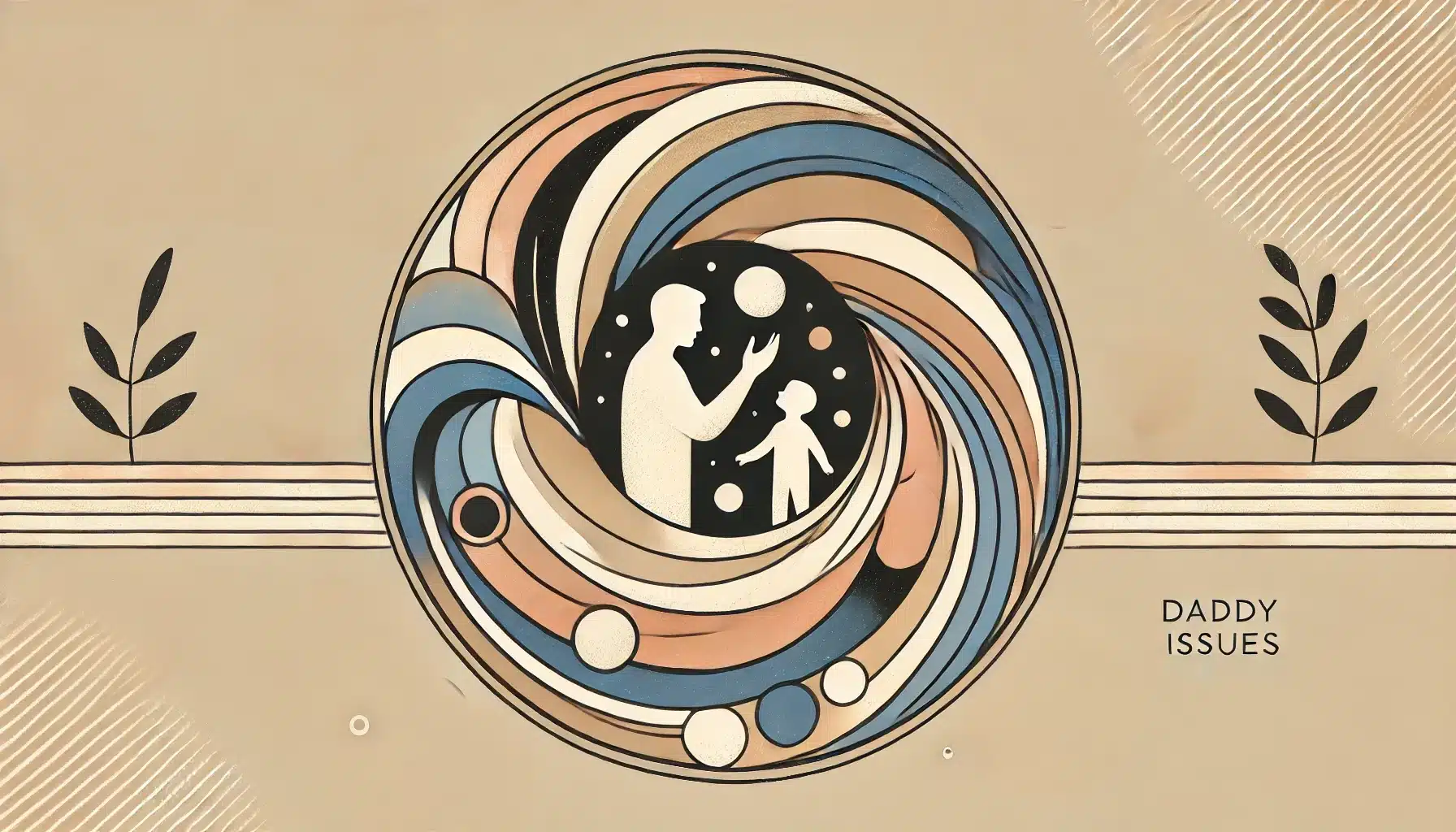The term “daddy issues” is widely used. It has become a catch-all term to describe almost everything a woman does when it comes to sex and relationships: if she ejaculates “too fast,” if she can’t have an orgasm, if she seeks reassurance or wants to be protected, if she prefers older men, likes to be spanked or calls her partner “daddy” in bed.
Children need a trusted adult in their lives to attach securely. If this fails, they may form an avoidant or fearful attachment style. If the father figure in a child’s life is not consistently secure or present, it can lead to an insecure attachment style later in adulthood. These attachment styles can eventually present themselves in many people as what some call “daddy issues.
‘Daddy issues’ is not an official medical term or a recognized disorder in the most recent edition of the Diagnostic and Statistical Manual of Mental Disorders (DSM-5). It is therefore difficult to provide a good definition. This is another reason why many experts have a problem with the term. In addition, the phrase is a way of minimizing women’s attachment needs.
Where did the idea of “daddy issues” come from?
“Daddy issues” probably stem from Freud’s idea about a person with a father complex, a person who has unconscious impulses and associations as a result of a bad relationship with his father.
From that theory came the Oedipus complex, the theory that boys feel an unconscious attraction to their mother, and the Electra complex, the theory that girls feel an unconscious attraction to their father.
Are there different types of “daddy issues”?
The attachment patterns formed in childhood can influence your attachment styles in your adult relationships. People’s experience with their parents is never exactly the same, even that of two children from the same family who are also identical twins.
Attachment styles are categorized as secure or insecure, with several subtypes of insecure attachment styles. Secure attachment styles result from having a caregiver who was responsive to your needs and emotionally available. Insecure attachment styles, on the other hand, result from having a caregiver who was unresponsive to your needs and emotionally unavailable.
Secure attachment styles develop when your childhood needs were met by your caregiver. People who have loving and secure relationships with their caregivers usually grow up to be confident and self-assured adults. These are the people who have their lives together in many ways, including their close relationships. Their relationships are usually long-lasting and built on genuine trust and intimacy.
Insecure attachment styles have much in common with what is summarized in the umbrella term “daddy issues.
- Being anxious when you are not with your partner
- need a lot of reassurance that the relationship is okay
- seeing every setback as a sign that the relationship is doomed to fail
It’s not just about romantic relationships, either. Your relationship with your caregivers and your attachment style also affect other close relationships, including your friendships.
Who suffers from “daddy issues”?
Father issues are not just a women’s thing. It doesn’t matter what biological sex you were assigned at birth or which gender you identify with; your relationship with your caregivers affects how you approach and deal with your adult relationships.
The way a person’s issues present themselves does not look exactly the same in everyone. So-called “daddy issues” can also very well be “mother issues,” “grandfather issues” or “grandmother issues. Or something completely different. No one is immune.
Why does the concept of “daddy issues” seem so gender-specific?
Freud’s theories focused primarily on the relationship between father and son. So traditionally, “daddy issues” are precisely not a woman’s thing at all. Why they have become so is a question with no answer. That it is harmful to make ‘daddy issues’ a woman’s thing is certain.
The term “daddy issues” for women who behave in a certain way is typically a method of dehumanizing a woman’s needs or desires. The term “daddy issues” can be used to indicate that a woman craves a strong attachment to a man. In these cases, using the term minimizes a woman’s basic needs in a relationship. Similarly, if a woman craves sexual intimacy with men, it must be because she has “daddy issues”: in other words, there must be something wrong with her for her to desire sex.
Anyone can have attachment wounds from not having strong relationships with your parents. Using the term only to refer to women is belittling.
How can your “daddy issues” influence your choice of partner?
People tend to get the kind of relationships they have had in the past, even if they were difficult, frightening or toxic. If your relationship with your caregiver was traumatic or disappointing you are more likely to choose a partner who will similarly disappoint or traumatize you.
For some, it is because this was their “norm” when they were growing up. This is the kind of relationship they think they should have. This is what they have come to think of as love. For others, a partner who looks like the parent is an unconscious hope of getting that parent’s love.
Insecure attachment styles can lead to behaviors that push your partner away and create the disappointing relationship you expect based on your past experiences. If you have not dealt with these problems, they can thereby also affect your potentially healthy relationship with a partner who is fine for you.
How can “daddy issues” affect your sexual identity and behavior?
A poor relationship with a caregiver can affect one’s sexual behavior. Evidence on whether and how it affects one’s sexual identity is mixed. Much of the available research on how a poor relationship with a father affects a child’s well-being and development focuses on women, primarily cisgender and heterosexual.
Those studies have linked less involved or absent fathers to everything from earlier puberty to increased sexual activity. That does not mean, however, that it is only women who can have problems with a less involved or present father.
Boys who were not given the opportunity to identify with their fathers may be just as insecure. This kind of insecurity may cause him to shy away from dating and sex, or lead him to compensate by exhibiting overly macho or aggressive behavior. According to the Centers for Disease Control and Prevention (CDC), a poor parent-child relationship, especially with fathers, is one of the risk factors associated with a greater likelihood of committing sexual violence.
Of course, not everyone with a bad relationship with their father will make bad decisions. ‘Daddy issues’ are also not always at the root of your choices when it comes to sex. Wanting to call your partner “daddy” in bed or preferring partners who are sexually dominant is not the same as having “daddy issues.
Everyone should have the opportunity to create the sex life he or she desires. Your sex life should not be pathologized, as long as it fits within your own values and is not harmful to your life.
How do you know if you need to start working on your “daddy issues”?
If you keep ending up in relationships that repeat the painful aspects of your childhood then it may be time to make a change. Think about your current or past relationships: Can you detect a pattern in the kinds of partners you choose? Are your relationships usually plagued by insecurity, fear, or drama?
Thinking about your experiences and learning about different attachment styles can help you figure out yours so you know if you need change. Try to observe different – healthier – relationships and family dynamics around you and try to apply what you learn from them to your own relationships.
You might also consider seeing a psychologist or therapist. They can help you work through unresolved issues and help you identify and change your attachment patterns.
Conclusion
Many of us have “daddy issues,” “mommy issues” or other attachment problems in our own way, whether they stem from a poor relationship with a caregiver, a parent who was absent due to death or divorce, or parents who fought a lot.
This does not mean that you are therefore forever infected or destined to a life of pain and bad choices because you were not given the security you deserved or set a bad example. Attachment problems are not only common, they are also treatable.
If your behavior that other people call “daddy issues” is not a problem for you, don’t let the other person shame you. His or her problematic attitude toward your lifestyle is an issue of theirs. They will have to learn to live with that.
Why do you keep falling for the same type?
Read the article Lovemaps: the hidden blueprint of our love.
Did you not find what you were looking for? Let me help you find more.

